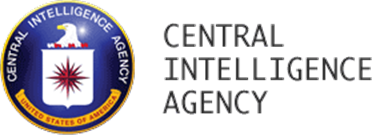CIA Full Form | What is Central Intelligence Agency
What is the full form of CIA
CIA: Central Intelligence Agency
CIA stands for Central Intelligence Agency. It is a civilian foreign intelligence service of the United States. It was established in 1947 when President Harry S. Truman signed the National Security Act. Its headquarters is George Bush Center for Intelligence, which is located in Virginia, United States.
Director of the CIA is Gina Haspel, who serves as the head of the CIA and reports to the Director of National Intelligence. He or she is nominated by the President and confirmed by the Senate. The director takes care of the operations, personnel, and budge of the CIA and acts as the National Human Source Intelligence Manager.

Vision:
To provide tactical and strategic advantage for the United States through information, insights, and actions
Mission:
- Take actions to prevent threats and further US national security objectives through intelligence
- Conducting objective all-source analysis
- Conducting effective covert action as directed by the President
- To safeguard secrets that help keep the Nation safe
Ethos:
CIA officers are guided by the professional ethos that comprises abiding principles, core values, and the highest aspirations of the CIA. Their ethos has many aspects, including the following:
- Service: Put Nation first, Agency before unit, and mission before self
- Integrity: It believes in the highest standards of lawful conduct and provides information without any institutional or political bias.
- Excellence: It brings the best of its diverse backgrounds and expertise to everything it does. It provides its officers with the tools, leadership, and experience that they need to excel.
- Courage: It accomplishes difficult tasks and does not shy away from risk.
- Teamwork: It stands by and behind one another.
- Stewardship: CIA personals retain their ability to obtain secrets by protecting sources and methods from the moment they enter on duty until their last breath.
Offices of the CIA:
The CIA is divided into five units or offices, which are as follows:
- Directorate of Intelligence
- Directorate of Support
- National Clandestine Service
- Directorate of Science and Technology
- Offices of the Director
Functions of CIA:
- It identifies the problem or the issue of national security.
- It collects and analyses information or foreign intelligence that is vital to the formation of US policies, specifically related to the security of the nation. Then it provides this information to the President and US government policymakers to help them make decisions related to national security. It only collects information about foreign countries and their citizens.
- It may study intelligence issues such as what are the plans of terrorist organizations, what the countries with biological or chemical weapons are planning to do with these weapons, etc.
- Performs other similar functions and duties as directed by the President or the Director of National Intelligence that may affect national security.